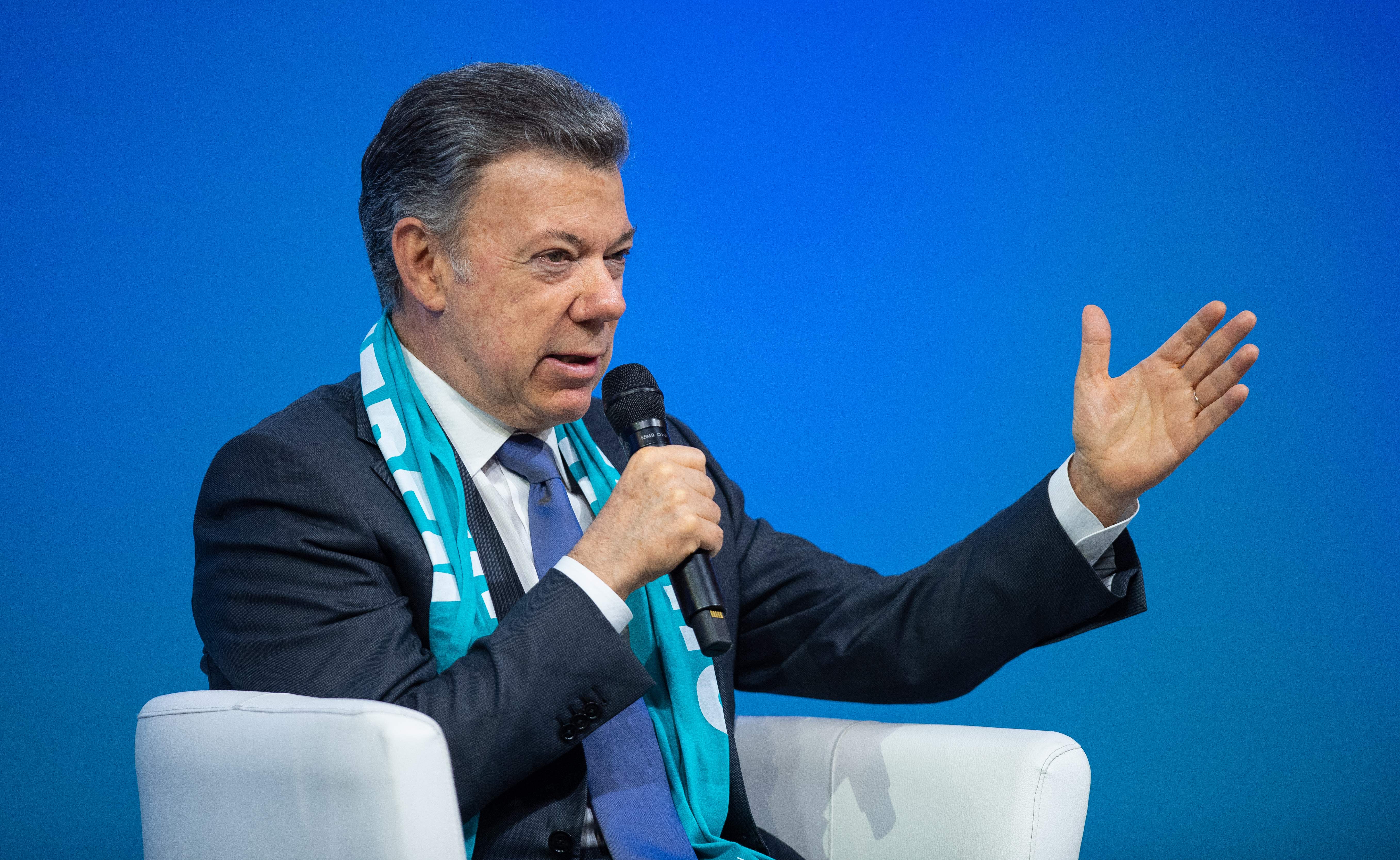Former Colombian President Juan Manuel Santos Challenges Peace Agreement Interpretation
Former Colombian President and Nobel Peace Prize winner, Juan Manuel Santos, has raised concerns regarding the interpretation of the 2016 peace agreement with the FARC guerrilla group. In a letter to UN Secretary-General Antônio Guterres, Santos emphasized that the agreement does not permit the convening of a Constituent Assembly, contrary to recent claims by current President Gustavo Petro and his former Foreign Minister Álvaro Leyva. Santos' letter, dated May 31, insists that the agreement's text neither proposes nor insinuates any bypassing of Colombian constitutional rules.
Dispute Over Constituent Assembly
The controversy stems from conflicting interpretations of a particular paragraph on page 7 of the peace agreement document. According to President Petro and Leyva, the agreement mandates the government to convene a Constituent Assembly, a body empowered to draft or reform a constitution. This interpretation, however, has been contested by Santos, who underscores the importance of the agreement’s original objectives—stability and lasting peace—within the framework of Colombia's current Constitution.
"I highlight this because current and former Colombian officials have attributed to some paragraphs of the agreement a meaning that is contrary to its object, scope, and purpose," Santos wrote in his letter. He further argued that invoking the peace agreement for a Constituent Assembly could breach the ‘principle of good faith’.
Criticism and International Involvement
The debate has drawn in multiple officials and former officials. Álvaro Leyva has encouraged President Petro to raise the issue before the UN Security Council, while Santos cautioned that attempting to involve the United Nations in Colombian internal politics may lead to diplomatic embarrassments.
In response, Santos reiterated that the peace agreement explicitly supports the implementation of institutional reforms and does not offer any mechanisms for convening a Constituent Assembly without legislative and judicial approval. He warned that any deviation from this could confront the legislative power, judicial power, armed forces, and the majority of Colombians.
Santos also referenced the Special Jurisdiction for Peace (JEP), a system for transitional justice integral to the peace agreement. He emphasized the importance of respecting Colombia’s tradition of constitutional supremacy and the independence of the JEP to prevent impunity for serious crimes committed during the armed conflict.
Former President Iván Duque and other key figures like former peace negotiator Humberto de la Calle have echoed Santos' position, expressing concerns over President Petro's stance and the implications it may have on Colombia's political stability.
- The UN has played a critical role in consolidating peace in Colombia, maintaining a Verification Mission to oversee the proper implementation of the peace agreement. Santos’ letter seeks to prevent misinterpretations that could undermine these international efforts and Colombia’s sovereignty.
- The ongoing debate highlights the broader political tensions within Colombia, especially regarding the government's approach to peace negotiations with other armed groups like the ELN and FARC dissidents. Santos’ letter, supported by international figures like former presidents Felipe González and José Pepe Mujica, underscores the need for strict adherence to agreed-upon frameworks to ensure any future peace processes can succeed.
- As tensions rise, it remains crucial for Colombian leadership to navigate these complex issues with a commitment to constitutional order and the principles established by the 2016 peace agreement.






